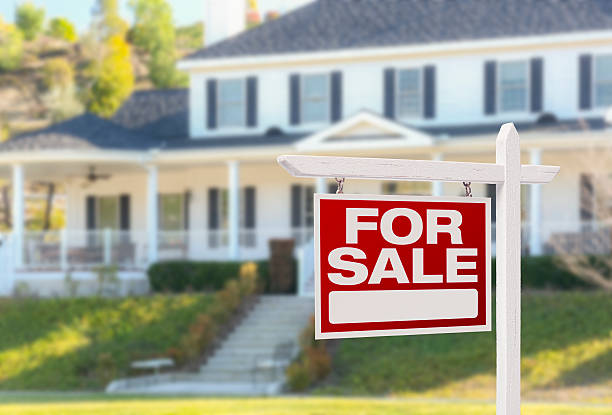What Every Homeowner Should Know About Property Value
Understanding the factors that affect your home's value can help you make smarter decisions whether you're planning to sell, refinance, or simply stay informed. From location trends to home improvements, learn what truly impacts your property’s worth.

How does location impact home value?
Location is often cited as the most critical factor in determining property value, and for good reason. A home’s proximity to amenities, quality of local schools, crime rates, and overall neighborhood desirability can significantly influence its worth. Properties in sought-after areas with low crime rates, excellent schools, and easy access to shopping, entertainment, and transportation typically command higher prices.
Moreover, the potential for future development in the area can also affect property values. Upcoming infrastructure projects, new businesses, or improvements to public spaces can increase the desirability of a neighborhood, potentially boosting home values over time.
Why are recent sales in your area important?
Recent sales of comparable properties in your area, often referred to as “comps,” play a crucial role in determining your home’s value. These sales provide concrete evidence of what buyers are willing to pay for similar homes in your neighborhood. Real estate professionals and appraisers rely heavily on this data when estimating a property’s worth.
To get an accurate picture, it’s important to look at homes that are similar in size, age, condition, and features to yours. Sales within the last six months are generally considered the most relevant, as they reflect current market conditions. Keep in mind that unique features or significant differences between your home and the comps may require adjustments to the estimated value.
Why do condition and updates matter for home value?
The condition of your home and any recent updates or renovations can significantly impact its value. Well-maintained homes with modern amenities and systems typically command higher prices than those in need of repair or updating.
Key areas that can affect value include:
-
Kitchen and bathroom updates
-
Energy-efficient windows and appliances
-
Updated HVAC systems
-
Fresh paint and flooring
-
Curb appeal and landscaping
While not all improvements will yield a 100% return on investment, strategic updates can enhance your home’s appeal to potential buyers and increase its overall value.
How do market trends affect property prices?
Real estate markets are dynamic and can fluctuate based on various economic factors. Understanding current market trends is essential for accurately assessing your home’s value. Some key factors to consider include:
-
Supply and demand in your area
-
Interest rates and mortgage availability
-
Local economic conditions
-
National and global economic trends
In a seller’s market, where demand outpaces supply, home values tend to rise. Conversely, in a buyer’s market with abundant inventory, prices may stagnate or even decline. Staying informed about these trends can help you make better decisions about when to sell or refinance your home.
What unique factors affect home values in the United States?
In the United States, several unique factors can influence home values beyond the standard considerations. These include:
-
Property taxes: Areas with high property taxes may see lower home values as buyers factor in ongoing costs.
-
Natural disaster risks: Homes in areas prone to hurricanes, floods, or wildfires may have lower values or higher insurance costs.
-
Zoning changes: Updates to local zoning laws can impact property values positively or negatively.
-
Historical significance: Homes with historical designations may command premium prices but also face restrictions on renovations.
-
Proximity to popular employers: Areas near major tech hubs or growing industries often see increased demand and rising home values.
How can you assess your home’s current value?
There are several methods to estimate your home’s current value:
-
Online home value estimators
-
Comparative Market Analysis (CMA) from a real estate agent
-
Professional appraisal
-
Home inspection
| Method | Provider | Cost Estimation |
|---|---|---|
| Online Estimator | Zillow’s Zestimate | Free |
| Online Estimator | Redfin | Free |
| CMA | Local Real Estate Agent | Often free (as a marketing tool) |
| Professional Appraisal | Licensed Appraiser | $300 - $600 |
| Home Inspection | Certified Home Inspector | $300 - $500 |
Prices, rates, or cost estimates mentioned in this article are based on the latest available information but may change over time. Independent research is advised before making financial decisions.
While online estimators provide a quick and free estimate, they may not account for recent updates or unique features of your home. A CMA from a local real estate agent can offer more accurate insights based on current market conditions. For the most precise valuation, especially for refinancing or legal purposes, a professional appraisal is often the best choice.
Understanding the factors that influence your home’s value empowers you to make informed decisions about your property. Whether you’re considering selling, refinancing, or simply want to maximize your investment, keeping these factors in mind will help you navigate the complex world of real estate with confidence.




